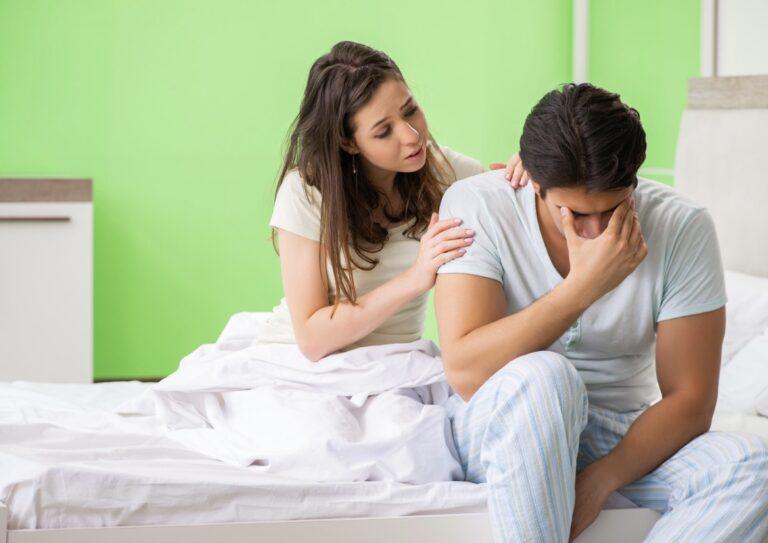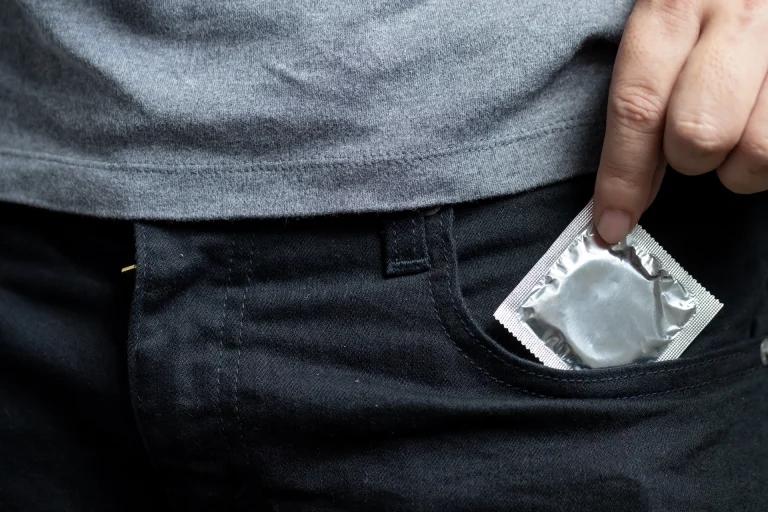Cycling’s good for you, right? But according to some people, and plenty of websites, cycling has a dark side – especially for men. They claim cycling can make you infertile, raise your risk of testicular cancer, and cause erectile dysfunction.
But is any of this actually true? Is there really a link between cycling and erectile dysfunction? Let’s get into it.
Can cycling cause erectile dysfunction (cycling impotence)?
So, can excessive cycling or excessive exercise cause erectile dysfunction? The general idea is that sitting on a hard, narrow saddle for long periods can damage the nerves and arteries leading to your penis. This could impede nerve signals that trigger erections and reduce the flow of blood that gets and keeps you hard.
And there has been some evidence of this happening. There have been reports of cyclists experiencing numbness in their penises, presumably caused by compression of their nerves and arteries. There have also been reports of ED that sometimes lasts for weeks and even months.
So case closed? Cycling causes ED, right? Not necessarily…
ED is mostly reported by men who do a lot of cycling, think multiple long-distance, long-duration bike rides per week. A recent study of men who regularly biked (but not professional long-distance cyclists) found they didn’t have more sexual problems, like ED, than men who preferred to swim and run.
It seems it’s the saddles and the position of the riders that cause the problem in long-distance cyclists, not the cycling itself. Using a wider, padded saddle, and making sure the handlebars are lower compared to the height of the saddle (making you lean forwards more) makes most cases of cycling-induced ED disappear.
The takeaway: Cycling shouldn’t give you ED if you aren’t an endurance cyclist. If you want to be extra sure, get a comfy saddle and lower your handlebars, but you should be fine.
Can cycling reduce testosterone?
So, is cycling bad for testosterone? This has also been claimed as a way cycling can cause ED. Some people say cycling reduces testosterone levels, and low testosterone can cause or contribute to ED. There is some evidence that high levels of endurance exercise, like hours and hours spent cycling, can lower testosterone levels.
But we’re talking endurance athletes here. In non-athletes who are fit and healthy, cycling likely won’t have any impact on testosterone. And in people who are sedentary and/or overweight, exercise of any kind generally increases testosterone levels.
The takeaway: Unless you’re an endurance athlete, if cycling has any impact on your testosterone levels, it’ll probably increase them.
Can cycling cause infertility?
There’s also plenty of talk online about cycling sperm count issues and that it can even make you infertile. Usually either because cycling damages your testicles or because wearing tight shorts heats your testicles up and lowers sperm production.
There is some evidence to support this. A study showed that triathletes who did high levels of cycling were more likely to have damaged and deformed sperm. The athletes who did the most cycling had the worst quality sperm.
And we do know that raising the temperature of testicles can lower sperm production and quality. So it may be that spending many hours cycling in tight shorts can reduce a man’s fertility. In the study above we’re talking about triathletes – they’re doing one of the most demanding sports there is. Moreover, the men who’d be classed as having a fertility problem were regularly cycling more than 186 miles (300km) a week.
There’s no convincing evidence that regularly cycling extreme distances reduces sperm quality. This is probably a risk for athletes and endurance cyclists only.
The takeaway: Regularly cycling hundreds of miles per week may reduce your fertility, but cycling less than this probably won’t affect you, other than giving you saddle sores. You can make sure you wear looser shorts and less tight-fitting underwear in general though, just to be on the safe side.
Can cycling cause testicular cancer?
There is some evidence for this too, but it’s mixed.
Generally, exercise lowers your chances of developing various cancers, including testicular cancer. Therefore, cycling may help protect you against cancer. However, there is some evidence that men who cycle or ride horses do have higher rates of testicular cancer. That said, it’s not known why or how much cycling could increase your risk (the risk may even be outweighed by the benefits of exercise).
The takeaway: This is one of those areas that needs more research before anyone can say anything with confidence.
What are the sexual benefits of cycling?
If you’re not regularly cycling hundreds of miles a week, cycling shouldn’t harm your sex life. In fact, the chances are it’ll improve it. As a low-impact cardio exercise that also works your leg muscles, cycling has a whole host of benefits, like:
- Improving the health of your heart and lowering the risk of heart disease
- Lowering blood pressure
- Helping you regulate blood sugar levels and lowering your chances of developing type 2 diabetes
- Helping you keep your weight/body-fat down
- Lowering your chances of developing certain cancers
- Helping you sleep better
- Improving your mood and mental health
- Building muscle in your legs and strengthening ligaments, tendons, and bones
These are just some of the benefits of exercise and cycling but pretty much all of them are associated with reducing your risk of ED. If you improve your heart and circulation, lower your blood pressure, reduce your body fat, improve your mental health, and get more sleep you’ll likely improve the quality of your erections.
The takeaway: The health benefits of cycling will likely reduce your chances of getting ED.
What to do if you have ED?
But what if you do have ED?
If you think it’s caused by cycling, then you should stop cycling for a time or at least reduce the amount that you cycle.
You need to take ED seriously too. The most important thing you can do is find out what’s causing it. Not only because you want to fix it quickly but because you also need to find out if you have a serious health problem.
ED has plenty of possible causes, from issues in your head, like stress, performance anxiety, and relationship worries to health conditions that affect your nerves, hormones, and blood flow. Some of these health conditions can be serious, like heart disease, diabetes, high blood pressure, and high cholesterol. Go see your doctor and get the ball rolling on this ASAP.
Your doctor may recommend that you try a prescription ED medication, like:
- Viagra (sildenafil)
- Cialis (tadalafil)
- Levitra (vardenafil)
These drugs can be effective treatments for ED. If you’re interested in trying them, you can buy ED medications directly NowPatient
Sources
- High Levels Of Cycling Training Damage Sperm: What Can Be Done To Protect Triathletes From Infertility? — ScienceDaily
- Cycling, and Male Sexual and Urinary Function: Results from a Large, Multinational, Cross-Sectional Study | Journal of Urology
Medical Disclaimer
NowPatient has taken all reasonable steps to ensure that all material is factually accurate, complete, and current. However, the knowledge and experience of a qualified healthcare professional should always be sought after instead of using the information on this page. Before taking any drug, you should always speak to your doctor or another qualified healthcare provider.
The information provided here about medications is subject to change and is not meant to include all uses, precautions, warnings, directions, drug interactions, allergic reactions, or negative effects. The absence of warnings or other information for a particular medication does not imply that the medication or medication combination is appropriate for all patients or for all possible purposes.









